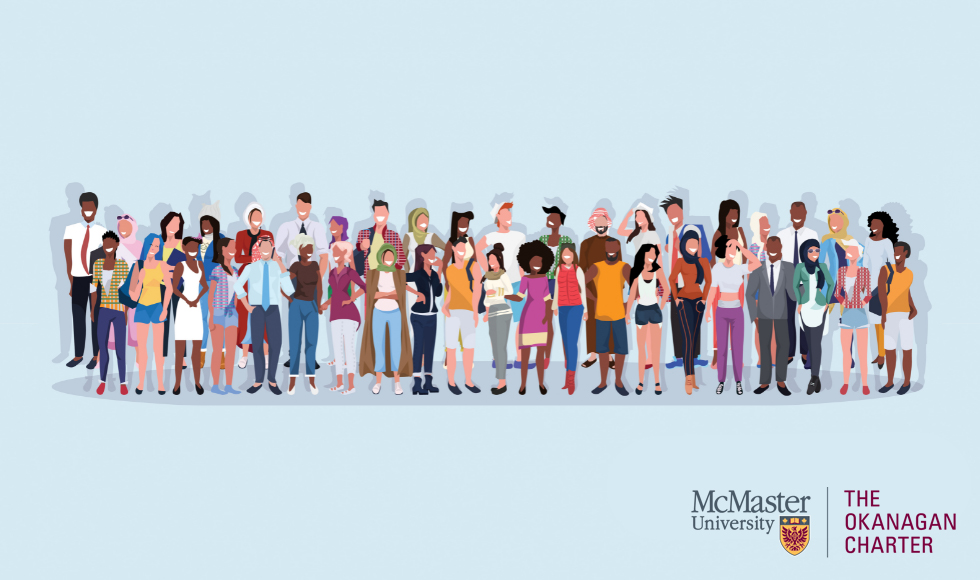Compassionate communication toolkit for McMaster leaders now available

COVID-19 and the quarantine have had significant effects on the mental health and well-being of Canadians and of McMaster students, faculty and staff. Within the McMaster community, many have experienced struggles, losses and challenges themselves or within their family, friend or peer groups.
To help support the campus community, the Okanagan Mental Health and Well-being Task Force is proud to introduce a Compassionate Communication Toolkit with information and advice on how best to communicate with team members as we transition back to campus and emerge from the pandemic.
Aligned with the Okanagan Committee’s mandate to champion optimal health and well-being at the university, the task force is particularly focused on creating more psychologically healthy and inclusive learning and working environments through educational resources like the communication toolkit.
Dr. Catharine Munn, chair of the task force and associate clinical professor in the department of psychiatry and behavioural neurosciences, says the toolkit was informed by best practices and evidence, as well as feedback from faculty, students and staff.
“One strong theme that emerged from the campus-wide feedback was a desire for clear, open and frequent communication from and with leaders, especially in these times of uncertainty and rapid change,” says Munn, who also serves as assistant dean, Resident Affairs, Postgraduate Medical Education (PGME). “The toolkit is intended to be a helpful resource for leaders to engage their teams in effective and compassionate ways.”
Toolkit resources include advice for starting conversations around mental health and well-being, recognizing the unique and individual experiences of the pandemic and how to communicate clearly about resourcing challenges. The toolkit also includes direct quotes from faculty, staff and students about the kinds of communications they appreciate and are looking for (and some that they are not).
Allison Drew-Hassling, director of Student Accessibility Services and Student Support and Case Management, says the toolkit addresses many of the common challenges that teams continue to face, navigating the realities of the pandemic.
“As a leader who aims to embed compassionate leadership with intentionality, I have personally experienced the benefits of many of these practices in creating psychologically healthy work environments,” says Drew-Hassling, who is also co-chair of the TMG Committee. “I think that this toolkit will be an invaluable resource for leaders seeking to build a sense of teamwork and belonging during the transitional period ahead.”
As a companion to the toolkit, community members can also find a curated sample of mental health training and support resources on the Okanagan Committee website.
Looking forward, Munn says the toolkit and companion resources are part of a wider movement at McMaster to inspire hope, energy and connection as we move beyond COVID-19 together, with more focus on mental health and well-being.
“Overall, the gradual return of activities to campus will be exciting and positive in many ways, but it may also be stressful. As a community, we have been through a lot in the last 18 months, and we’re entering another period of uncertainty and change,” says Munn.
“That’s why it’s so important for all of us to support each other and to continue to build our capacity to communicate clearly, frequently and compassionately. We hope this toolkit can help to stimulate important conversations in this transition, keeping mental health in mind.”


